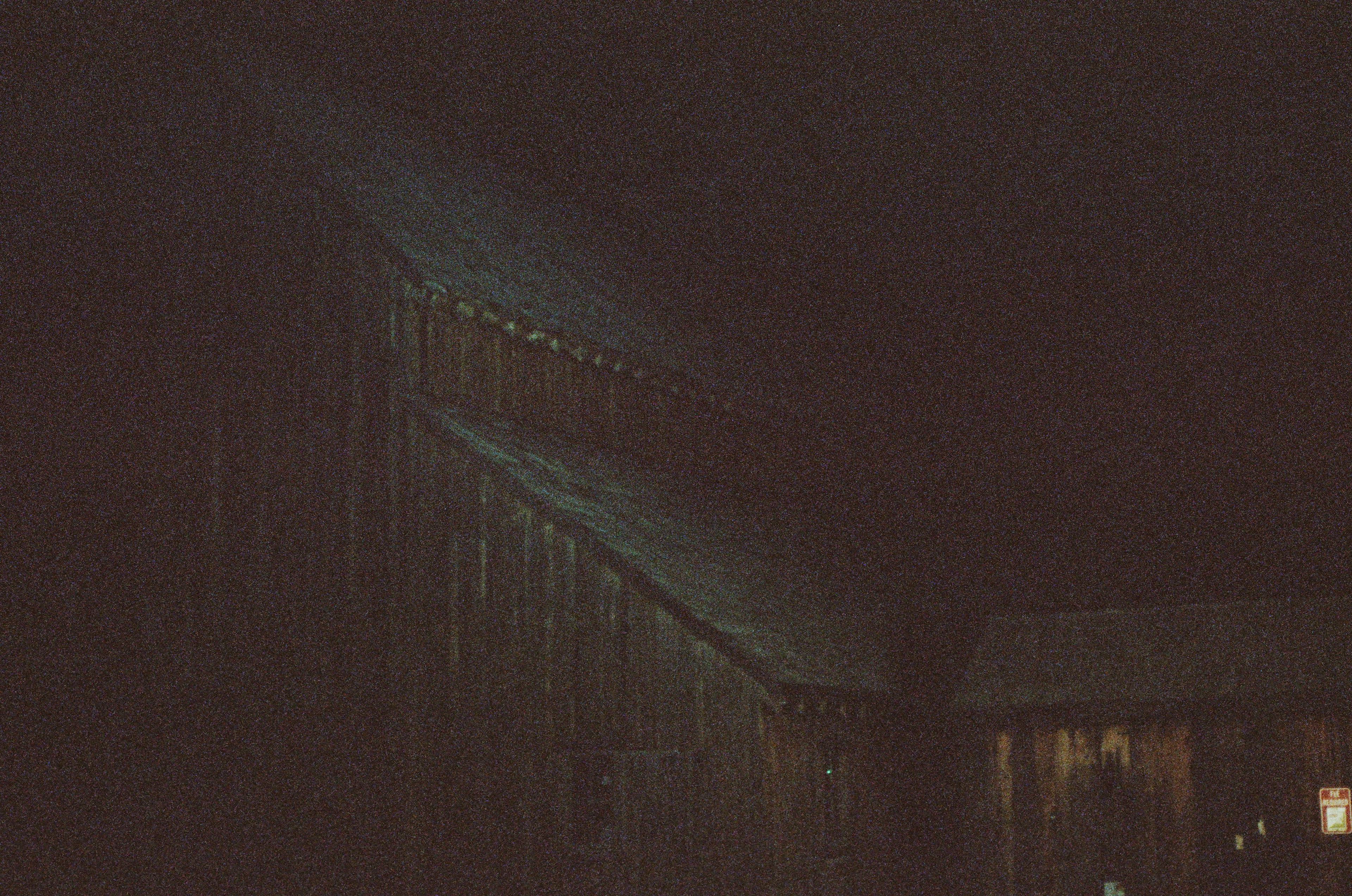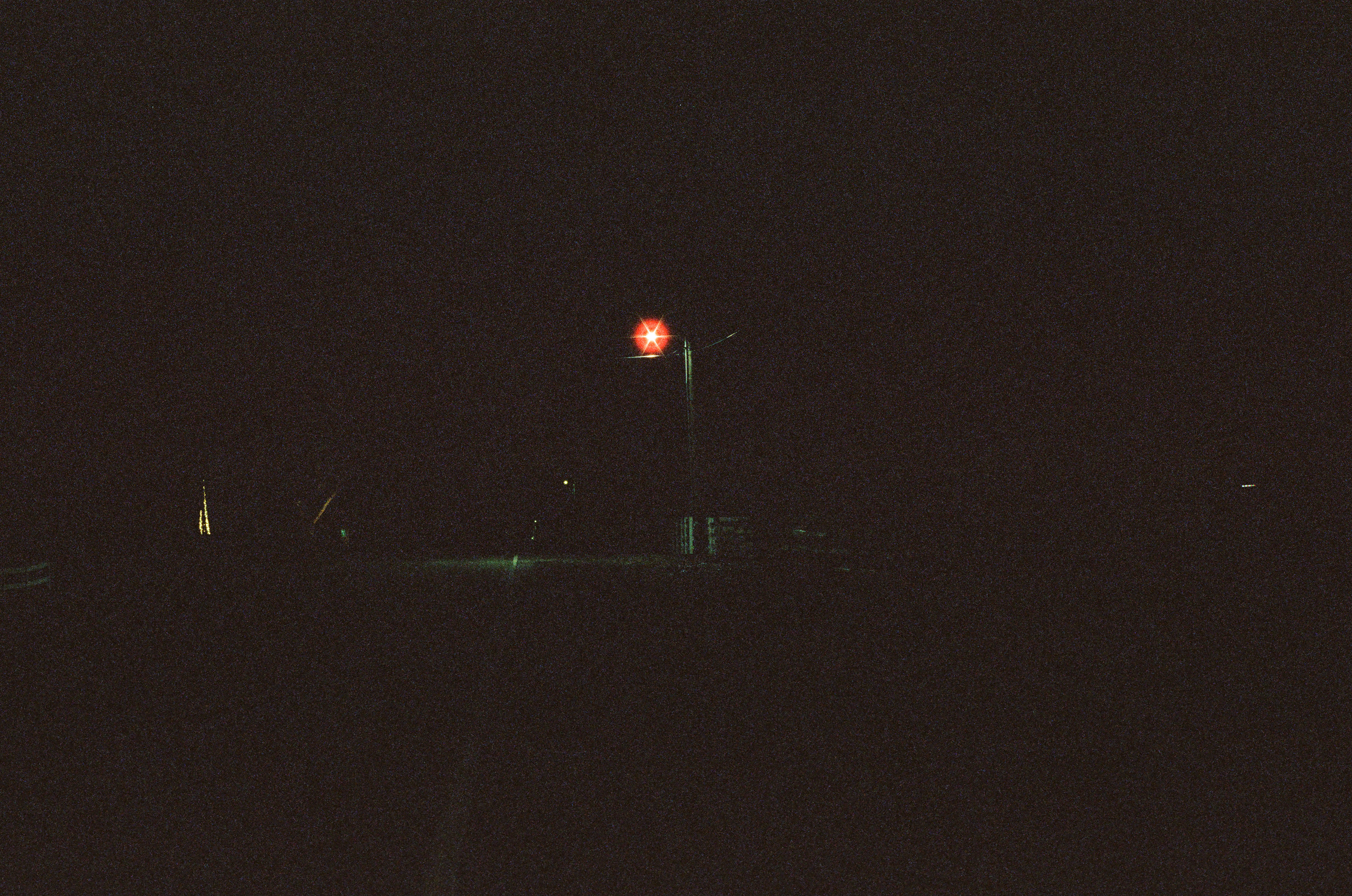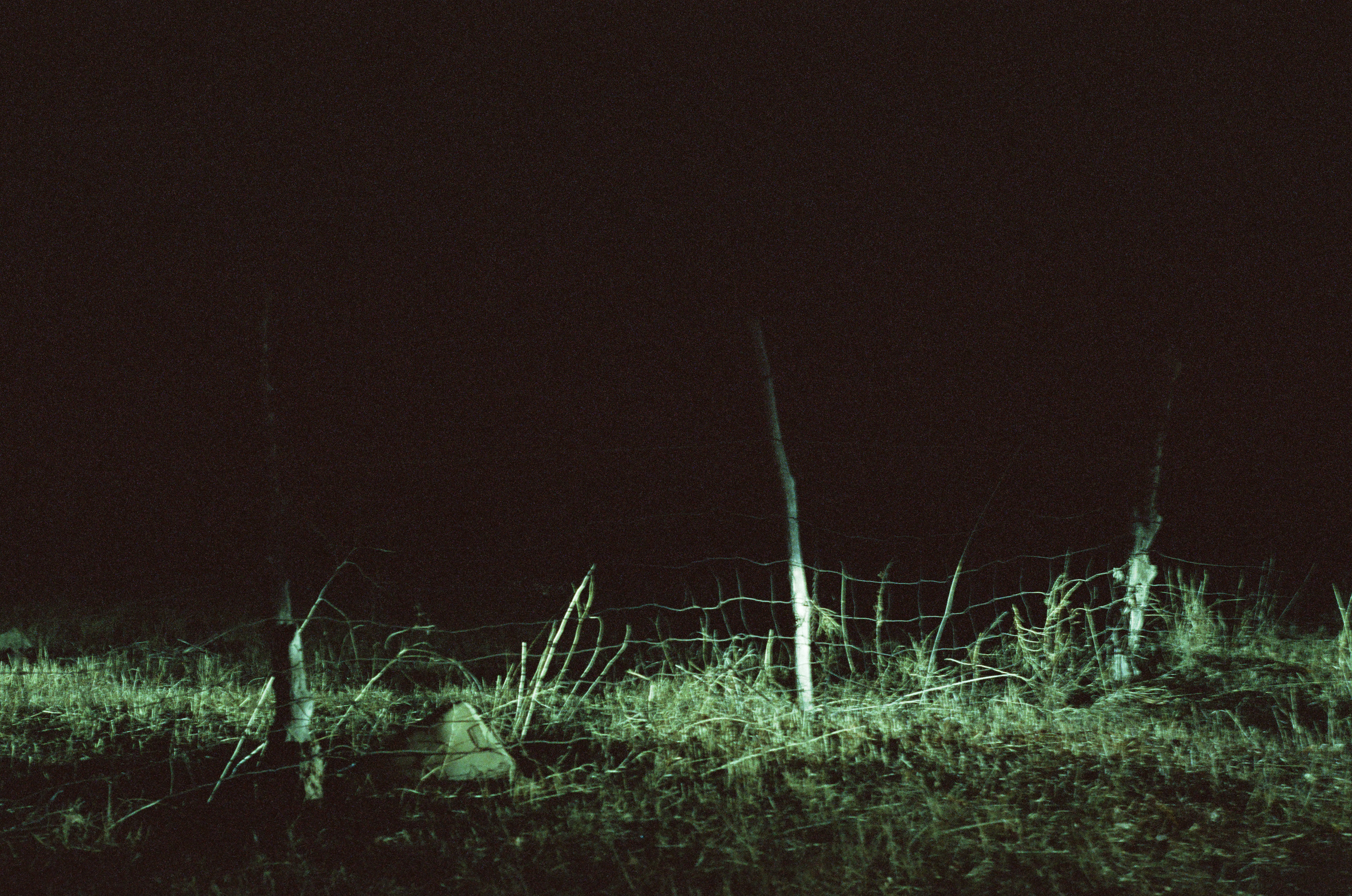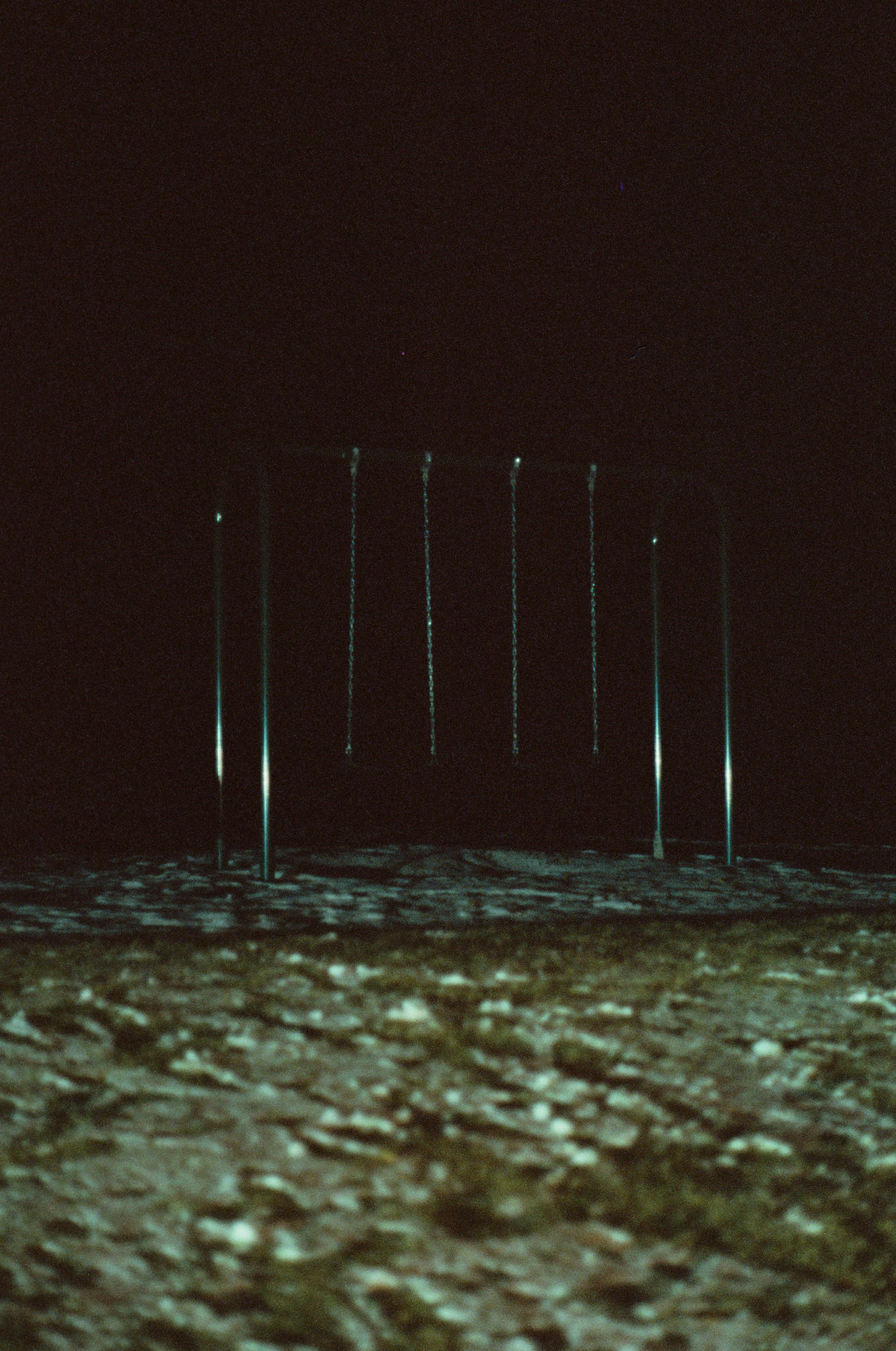single channel video, color, sound, 7 minutes
On an evening exploring the liminal spaces of small town Heber City, Utah, a girl lurks in their shadows, confronting her estranged contention with the religious culture.
The film Midnight Service explores Smith’s perspective of her town and its religious aspects through still, atmospheric images backed with various conversations that live within the culture of the town.
Director Kaylee Smith was raised in Heber City, Utah for most of her youth. The town is a part of a very strong Mormon community and Smith herself practiced the religion for many years before she decided to leave in her teenage years. It is only after Smith has separated herself from the culture that she has been drawn back to analyze her contention with the religion.
The film is largely set at night, bookended by scenes at dawn, evoking a sense of solitude and discovery in Heber’s quiet moments. Using low-fi video cam footage, its still shots feel inherently observational, capturing the town’s essence with a haunting specificity. The grainy, patchy quality of the visuals imbues the film with the texture of memory, as though the places and images exist just on the edge of recollection.
The image and sound of water running through a creek is used structurally throughout the film to evoke a sense of cleansing and endurance. This subtle presence serves as a reminder of the undercurrents shaping the town’s culture—forces that may not always be visible but remain deeply felt.
Smith’s directorial work always contains themes of female experience, and Midnight Service explores the worldview of womanhood within this small town culture, one that is ingenuine and falls to traditional, patriarchal values. By juxtaposing stillness and sound, the film captures the tension between ingrained societal norms and the quiet, personal acts of reflection and resistance. Through this project, Smith invites viewers to engage with the intersections of memory, identity, and cultural critique, creating a space where discomfort and understanding coexist.
Director Kaylee Smith was raised in Heber City, Utah for most of her youth. The town is a part of a very strong Mormon community and Smith herself practiced the religion for many years before she decided to leave in her teenage years. It is only after Smith has separated herself from the culture that she has been drawn back to analyze her contention with the religion.
The film is largely set at night, bookended by scenes at dawn, evoking a sense of solitude and discovery in Heber’s quiet moments. Using low-fi video cam footage, its still shots feel inherently observational, capturing the town’s essence with a haunting specificity. The grainy, patchy quality of the visuals imbues the film with the texture of memory, as though the places and images exist just on the edge of recollection.
The image and sound of water running through a creek is used structurally throughout the film to evoke a sense of cleansing and endurance. This subtle presence serves as a reminder of the undercurrents shaping the town’s culture—forces that may not always be visible but remain deeply felt.
Smith’s directorial work always contains themes of female experience, and Midnight Service explores the worldview of womanhood within this small town culture, one that is ingenuine and falls to traditional, patriarchal values. By juxtaposing stillness and sound, the film captures the tension between ingrained societal norms and the quiet, personal acts of reflection and resistance. Through this project, Smith invites viewers to engage with the intersections of memory, identity, and cultural critique, creating a space where discomfort and understanding coexist.
The Midnight Service short film is accompanied by still 35mm photographs
Through the Fence


Vigil
Untitled
Midnight Service


Headlights
One Afternoon
Passing by